
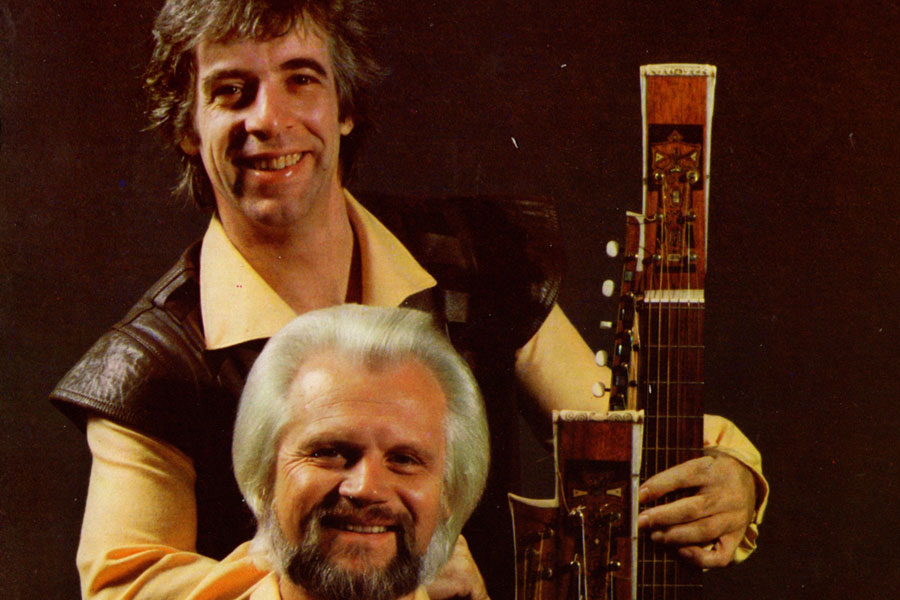
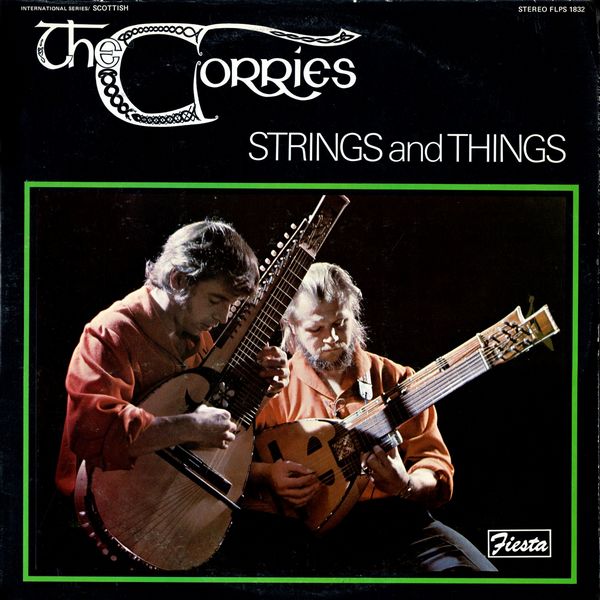 |
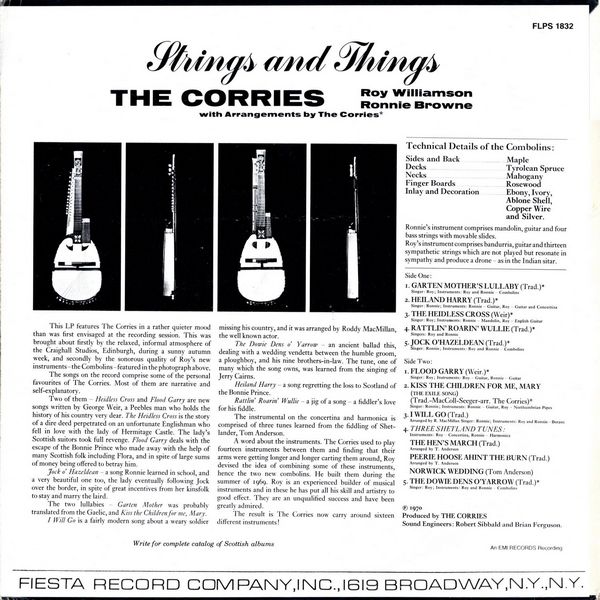
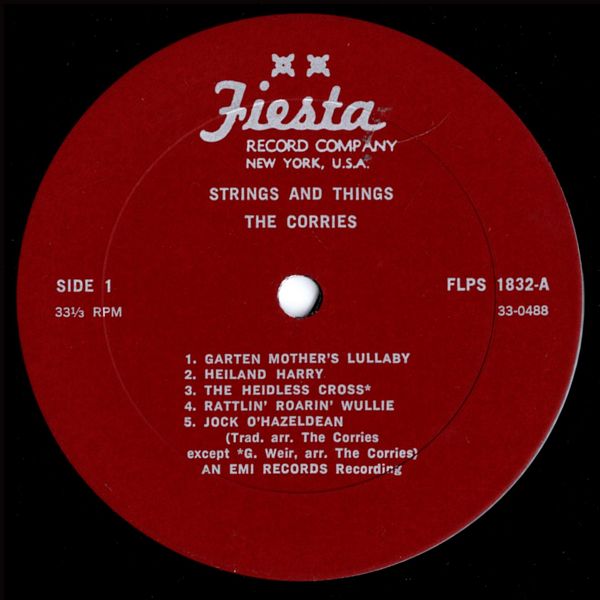
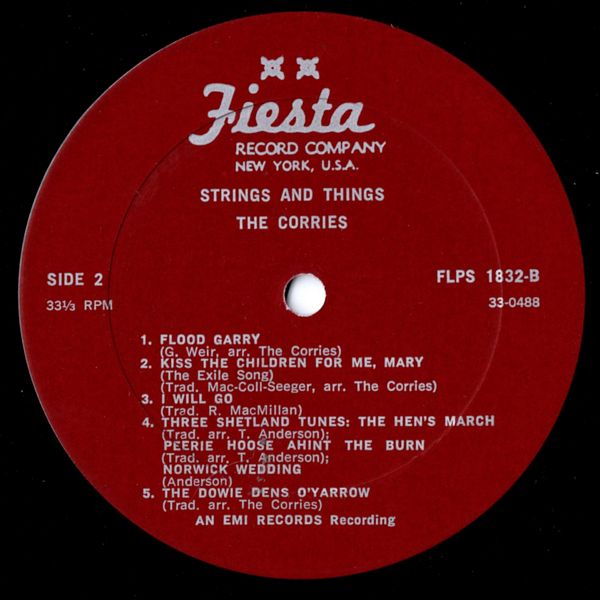
|
A word about the instruments. The Corries used to play fourteen instruments between them and finding that their arms were getting longer and longer carting them around, Roy devised the idea of combining some of these instruments, hence the two new combolins. He built them during the summer of 1969. Roy is an experienced builder of musical instruments and in these he has put all his skill and artistry to good effect. They are an unqualified success and have been greatly admired. The result is The Corries now carry around sixteen different instruments!
Ronnie's instrument comprises mandolin, guitar and four bass strings with movable slides.
Roy's instrument comprises bandurria, guitar and thirteen sympathetic strings which are not
played but resonate in sympathy and produce a drone - as in the Indian sitar.
Sleeve Notes
This LP features The Corries in a rather quieter mood than was first envisaged at the recording session. This was brought about firstly by the relaxed, informal atmosphere of the Craighall Studios, Edinburgh, during a sunny autumn week, and secondly by the sonorous quality of Roy's new instruments-the Combolins- featured in the photograph above.
The songs on the record comprise some of the personal favourites of The Corries. Most of them are narrative and self-explanatory. Two of them - Heidless Cross and Flood Garry are new-songs written by George Weir, a Peebles man who holds the history of his country very dear. The Heidless Cross is the story of a dire deed perpetrated on an unfortunate Englishman who fell in love with the lady of Hermitage Castle. The lady's Scottish suitors took full revenge. Flood Carry deals with the escape of the Bonnie Prince who made away with the help of many Scottish folk including Flora, and in spite of large sums of money being offered to betray him.
Jock o Hazeldean a song Ronnie learned in school, and a very beautiful one too, the lady eventually following Jock over the border, in spite of great incentives from her kinsfolk to stay and marry the laird.
The two lullabies — Garten Mother was probably translated from the Gaelic, and Kiss the Children for me, Mary.
I Will Go is a fairly modern sons; about a weary soldier missing his country, and it was arranged by Roddy MacMillan, the well known actor.
The Dowie Dens o' Yarrow — an ancient ballad this, dealing with a wedding vendetta between the humble groom, a ploughboy, and his nine brothers-in-law. The tune, one of many which the song owns, was learned from the singing of Jerry Cairns.
Heiland Harry — a song regretting the loss to Scotland of the Bonnie Prince.
Rattlin' Roarin Wullie — a jig of a song — a fiddler's love for his fiddle.
The instrumental on the concertina and harmonica is comprised of three (Shetland) tunes learned from the fiddling of Shetlander, Tom Anderson.